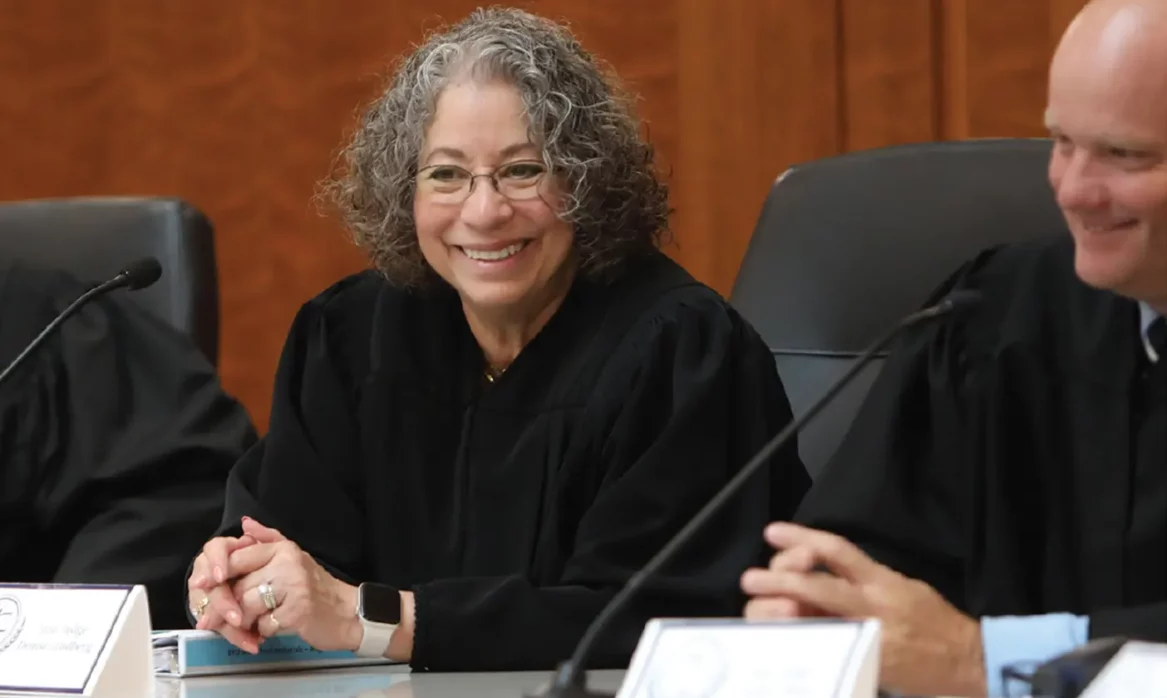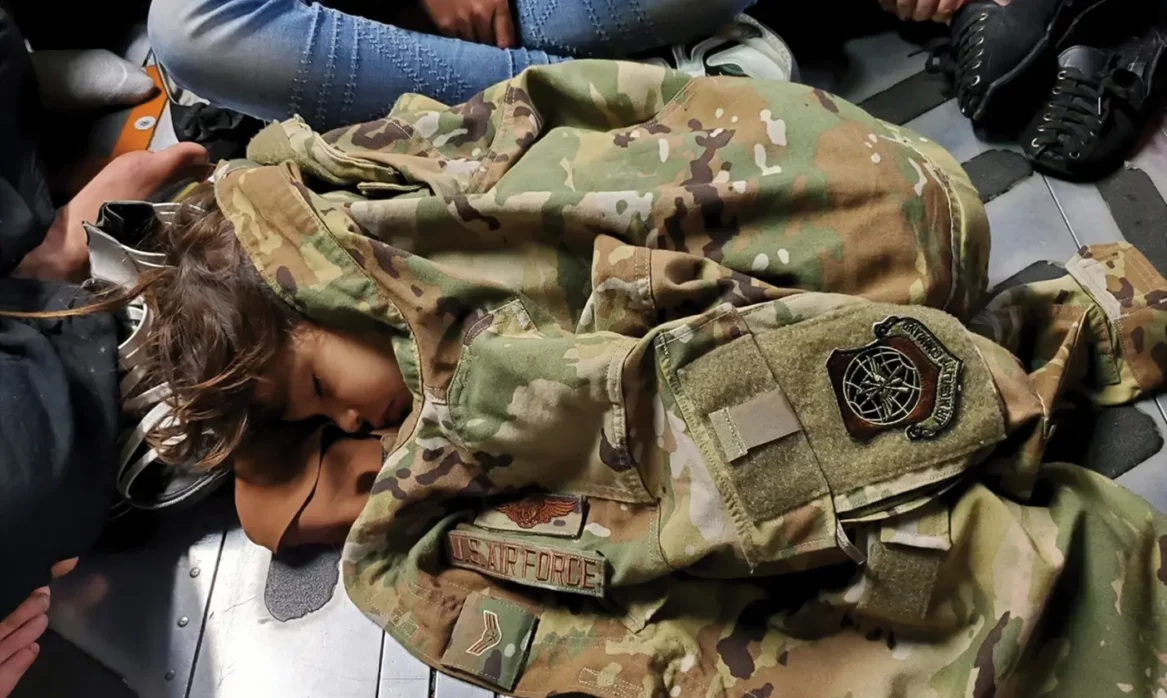Providing feminine hygiene kits and education, a nonprofit has lifted millions of girls and women out of the shadows.
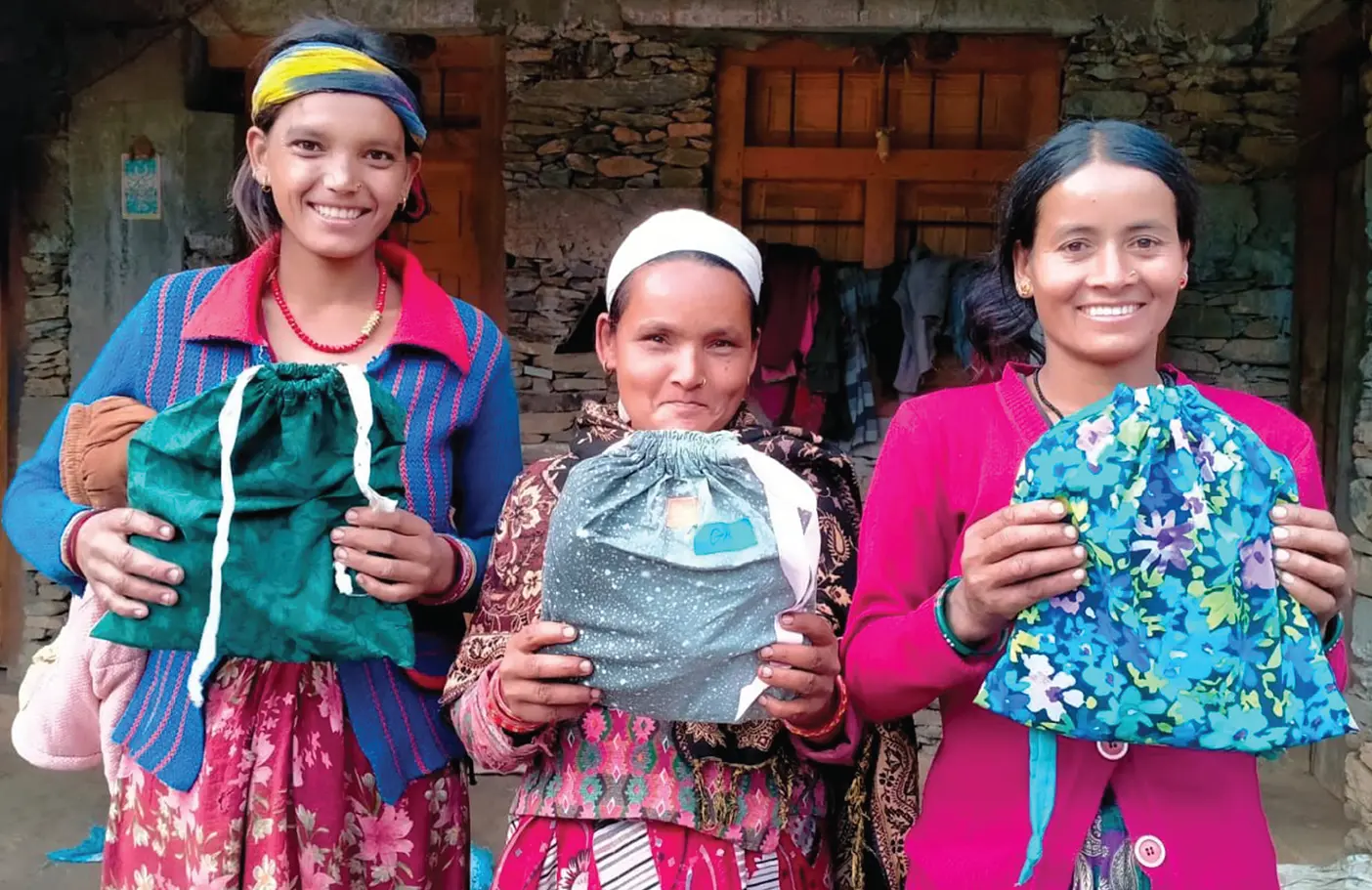
It was that rare moment, and rarer still for a 5-year-old, when everything afterward is forever changed.
Celeste Humphrey Mergens (’81), from a nearly homeless family, was traipsing barefoot along a warm sidewalk when a small white dog with a shiny rhinestone collar ran into her. Her eyes followed the leash up to a Cruella de Vil–looking figure who glared at her and said, with no little disdain, “Where are your shoes, girl?”
Celeste replied, “I’m toughening my feet,” then wondered how she might retrieve the partially eaten apple “Cruella” had thrown into a dumpster.
But the woman’s words hurt. As she turned away, Celeste could see, as if looking in a mirror, exactly how the woman saw her: as a dirty, disheveled waif with ill-fitting clothes. She felt ashamed and insignificant. But then a warm assurance filled her, and a prompting from the Holy Ghost asked, “Are you the poor girl? The hungry girl? Or are you something else?” And in that moment she knew definitively she was much more than her appearance and circumstances.
“It’s always about the girl.”
Understanding how God saw her and the belief that even the poorest girl matters became the wellspring that led Mergens to a lifetime of service and the founding of the award-winning nonprofit Days for Girls (DfG) in 2008.
Mergens had attended BYU until family crises caused her to withdraw. However, leaving BYU led to her marriage to Don Mergens and a family. In time their life journey led them to Kenya. “The Lord’s hand was in all of it,” she says.
In Kenya they assisted in community education as well as with an orphanage near Nairobi. Post-election violence in 2008 led to the dislocation of half a million people. The orphanage swelled to 1,400 kids. Following a desperate call from the orphanage saying they’d had no food for two days, Mergens pled with God to know how to help. She’d already done fundraisers and donated personal funds. But she woke up at 2:30 a.m. with an additional question: What were the girls doing for feminine hygiene?
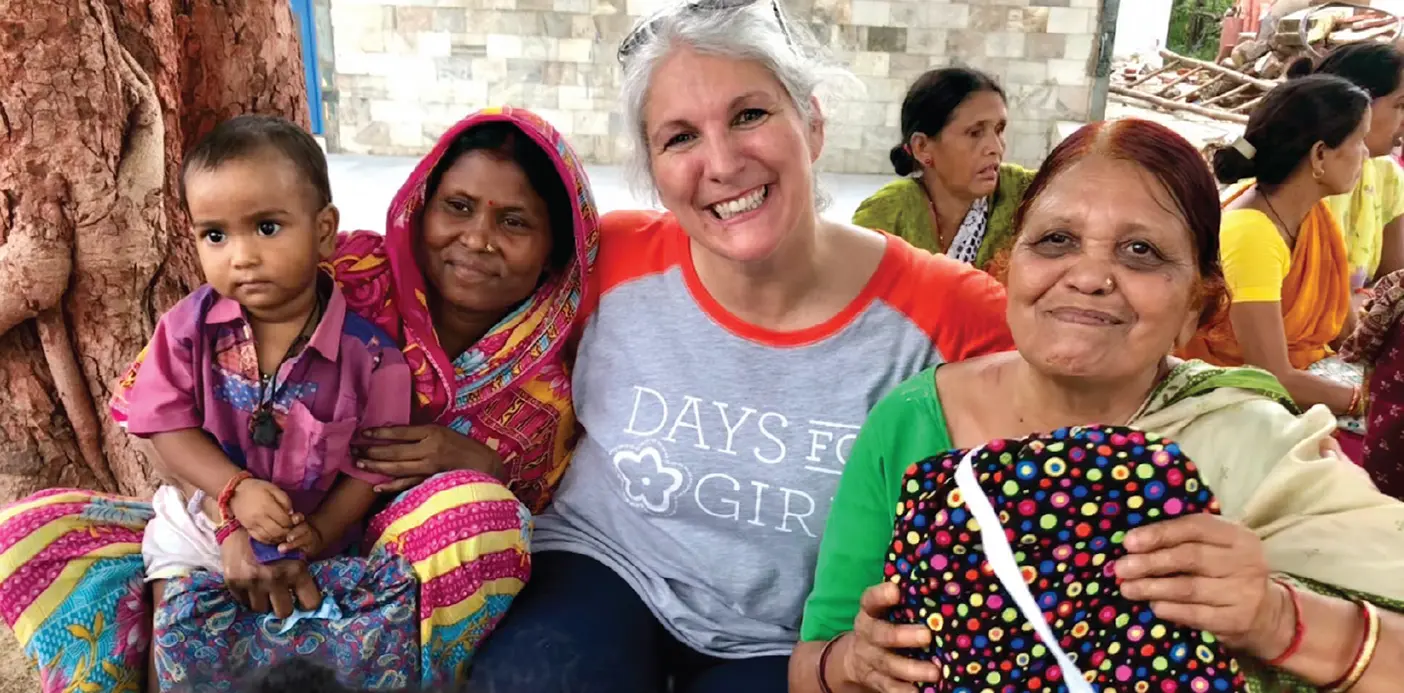
She emailed and learned that “the girls sat in rooms on pieces of cardboard for days.” Dismayed, Mergens got to work. After finding funding for food for the orphanage, she rallied the community, including Relief Society sisters, to create 500 washable pads, the first of many iterations.
Her inspired question put her right up against some of the world’s most common taboos and health concerns. It is estimated that 25 percent of women around the world lack access to menstrual-care products. For example, in western Nepal some menstruating women are considered impure and are shamed and relegated, even in hostile weather, to livestock sheds or open fields. But Mergens was not cowed by the challenge. For 14 years she invited the world to end the stigma and remove limitations by offering solutions and education.
Today, more than 15 years later, DfG has provided education, washable pads, and underwear to more than 3 million women in 145 countries. The “Days” refers to the days of school, income, and participation in public life women and girls lose from lack of access to period products.
As Mergens developed DfG, she brought on, among others, Tiffany Niland Larson (BA ’02), a BYU international-studies grad who had been raised by service-oriented parents and says she “is incredibly grateful for her time” at BYU.
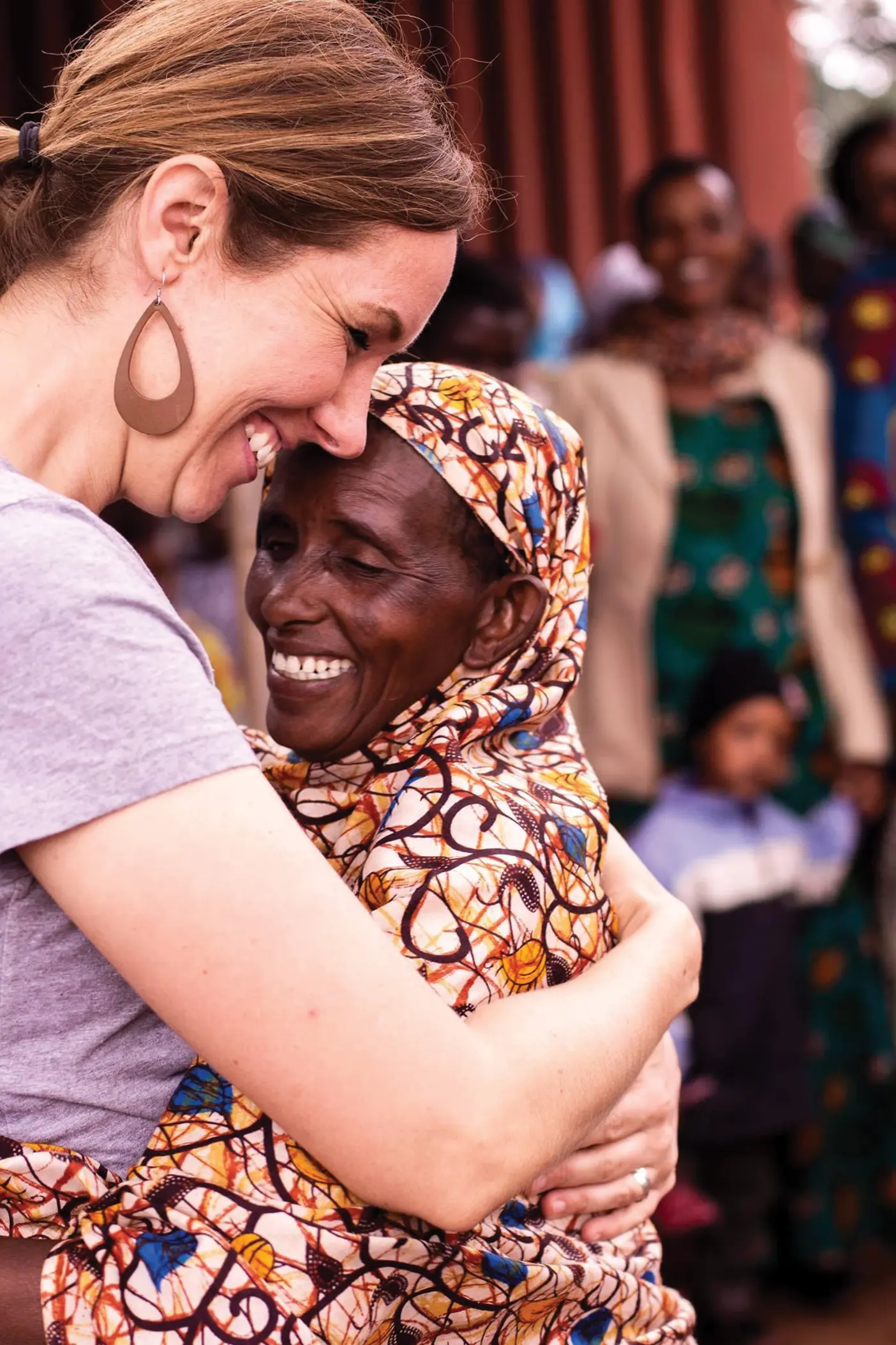
After her youngest started kindergarten, Larson searched her soul. She wanted to do something meaningful and international—and include her family in doing it. On family service trips to India and Peru, she had met volunteers with Days for Girls. Her curiosity and a two-hour talk with Mergens led her from an initial five-hour volunteer commitment to directing 20,000 volunteers to still other roles in a period of high growth. In 2021 Larson’s strong leadership, systems savvy, experience abroad, and sound instincts all led the DfG board to tap her as the next CEO. “Through a lot of pondering, prayer, and discussions with my family, I decided to accept the position,” says Larson.
Running an international organization is demanding. Volunteers, funding, tax codes, laws governing fabric imports, and other compliance issues must be managed. But, as Mergens and Larson both say, “it’s always about the girl.” To keep DfG sustainable Larson “pulls the levers that have the greatest impact.” In Cambodia they’re working with the Ministry of Education, Youth, and Sport to get DfG menstrual-health lessons into the national school curriculum. They train master teachers, who teach local teachers.
“DfG has changed me, because I’ve learned I can make a difference—a tangible difference,” says Larson. She tells of visiting local DfG educators in Tanzania who were teaching local women and distributing hygiene kits. “As women were taught truth about their bodies, why they’re menstruating, that having a period is a healthy part of being a woman, and that without periods there would be no people, you could see the change in their eyes and shoulders, their whole countenance,” she says. “And at the end, the women began singing and cheering. They said, ‘Thank you for coming! Now we can be proud to be women.’”











